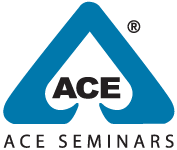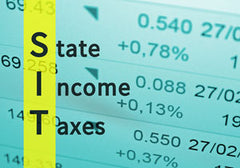Financial Statements Update - 2 Courses In 1 An All-New Seminar
(Full-Day or 2 Half-Days or 1 Half Day Only)
Previous
Next
(Full-Day or 2 Half-Days or 1 Half Day Only)
CREDITS: 8
CATEGORY: Accounting
SPEAKER: Prof. Kenneth Heaslip, CPA
DATE: Tuesday January 6, 2026 or 2 Half-Days 1/6 & 1/7
or Any Day or 2 Half-days 1/19-22
or Any Day or 2 Half-days 2/9-12
TIME: Full Day Option: 8:50 A.M. - 5:10 P.M. Eastern
8:50 - 10:45 Welcome & Lecture
10:45 - 11:00 Coffee Break
11:00 - 12:30 Lecture
12:30 - 1:30 Lunch (on your own)
1:30 - 3:15 Lecture
3:15 - 3:30 Coffee Break
3:30 - 5:00 Lecture
5:00 - 5:10 Wrap-up
Half Day Option: View Anytime Between 9AM-5PM Eastern on each day.
LOCATION: All New (2022) Pre-Recorded Webinar With Live Q&A
Part 1 - Financial Statement Analysis - Basic Overview - 4 CPE Credits
Financial statements are the key to most business decisions. Often, the statements are presented as a key piece of information, and often they are misunderstood. This program is an overview of financial statements, how data is presented, and how to extract needed information that is relevant to business decisions. It will cover the format of the balance sheet, income statement, statement of cash flows and notes to the financial statements. The course will focus on how to extract necessary information, and financial ratios that are used as analytical tools. The proper understanding of accounting terminology will also be discussed to understand exactly what the information is and what it means. In addition to basic ratio tools, the course discusses cash flow, working capital, solvency, liquidity, and profitability.
Part 2 - Tax Basis & Other Special Purpose Frameworks - 4 CPE Credits
Most small business entities do not have the support or financial need for GAAP basis financial statements. They keep their records on a tax basis for income tax reporting and either convert them to GAAP, cash, or present them to users as Non-GAAP financial statements. This seminar will discuss the non-GAAP frameworks, tax, cash, regulatory, contractual, and Financial Reporting Frameworks (FRF) for Small & Medium Entities (SME's). It will focus on financial statement presentation, disclosures, and departures from or modifications to each framework. Also discussed will be how to read the financial statements along with the advantages and disadvantages of each.
REMINDER: You need to have 40 CPE credits in A&A every 3 years if you prepare financial statements. This seminar will help you meet your 40 CPE requirement.
Topics & Learning Objectives Include:
PART 1 - FINANCIAL STATEMENT ANALYSIS - BASIC OVERVIEW - 4 CPE CREDITS
- Balance Sheet
- Income Statement
- Statement of Cash Flows
- Notes to Financial Statements
- How To Analyze the Financial Statements
- And Much More
PART 2 - TAX BASIS & OTHER SPECIAL PURPOSE FRAMEWORKS - 4 CPE CREDITS
- Tax Basis Financial Statements
- Cash Basis Financial Statements
- Regulatory Financial Statements
- Contractual Financial Statements
- Financial Reporting Framework (FRF) for Small & Medium Entities (SME's)
- Compare The Advantages & Disadvantages of Each Framework
- And Much More
Kenneth Heaslip is one of the foremost lecturers in Accounting & Auditing. He has over 30 years of experience in lecturing on A&A topics and is currently a professor at Mercy College.
- Program Level: Intermediate
- Prerequisites: Basic Knowledge of U.S. GAAP, Compilation & Review, and Auditing Standards
- Advance Preparation: None Required








